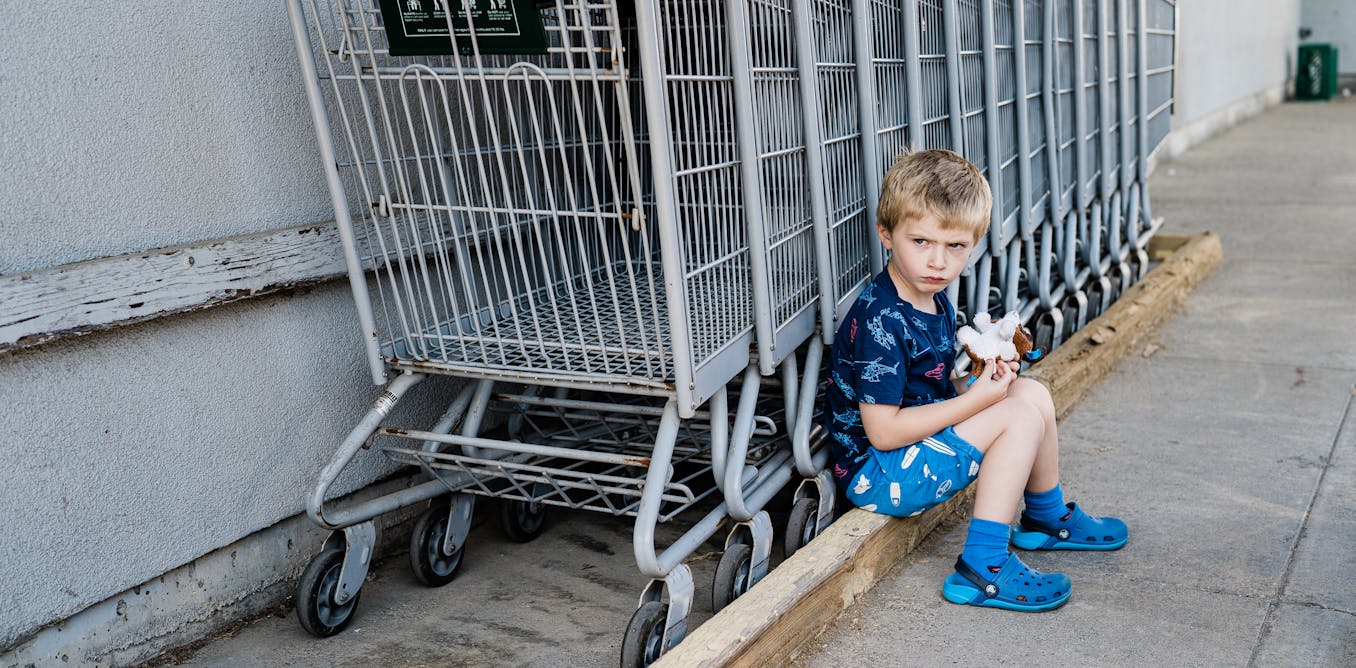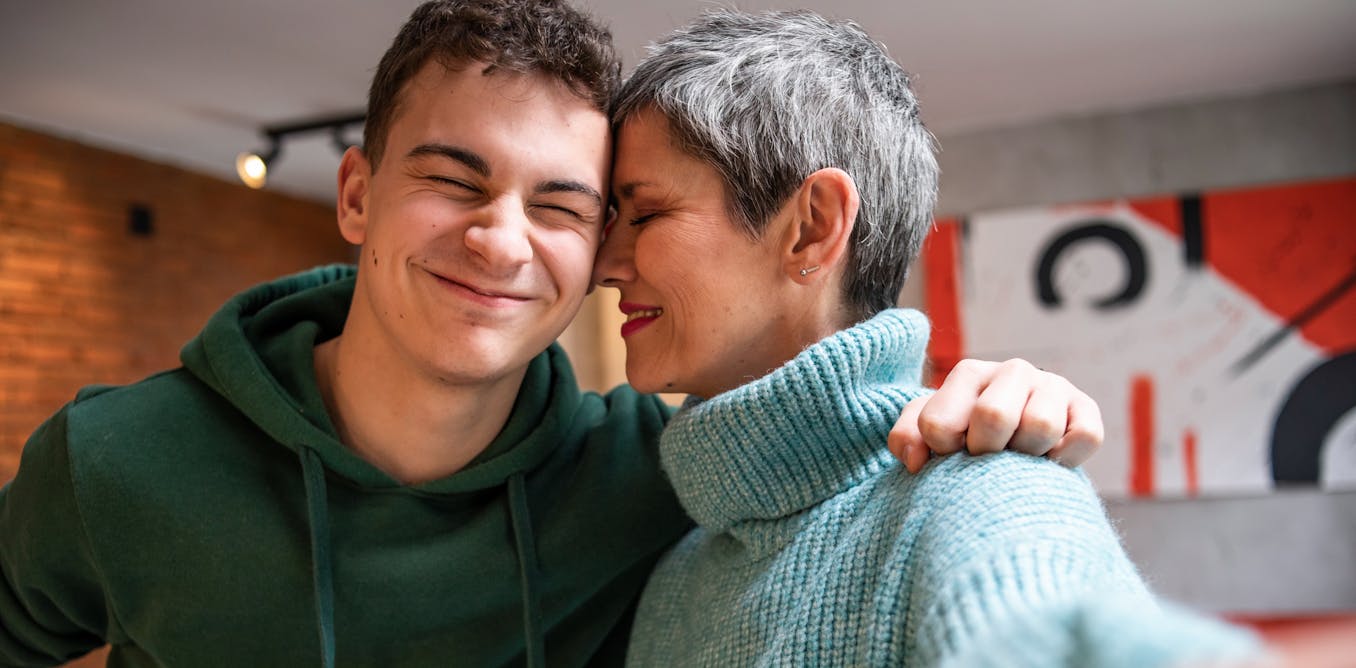Netflix’s new limited series, Apple Cider Vinegar, tells the story of the elaborate cancer con orchestrated by Australian blogger Annabelle (Belle) Gibson.
The first episode opens with Gibson’s character (played by Kaitlyn Dever) breaking the wall between the performance and the audience, saying:
This is a true story based on a lie. Some names have been changed to protect the innocent. Belle Gibson has not been paid for the recreation of her story.
And from these first few seconds, we know, Gibson herself is not innocent.
A familiar story
For anyone who followed Gibson during her rise to fame in the 2010s – or her spectacular fall – the show feels eerily familiar.
From the clothing, to the makeup, to the food, Apple Cider Vinegar excels in set design and staging. Every effort has been made to ensure this true story, based on a lie, looks like it did when it was unfolding on our phone screens in 2010s.
As someone who followed Gibson closely and spent months hunting down the recalled cookbook to see if the health claims were as outlandish as I’d heard (they were), this show was a treat to watch.
The scenes are cut with recreations of Belle’s stylised Instagram pictures of green juices, beaches and food with “no nasties”. Belle’s account was removed from Instagram after the massive public ousting of her hoax.
Apple Cider Vinegar has done an incredible job recreating this account and breathing life back into the deleted content.
Netflix
The cancer con
While the core story of Apple Cider Vinegar is unpacking Gibson’s lies and path to destruction, it also shows us a very real and heartbreaking side to cancer.
Other prominent characters include fellow influencer, Milla Blake (played by Alycia Debnam-Carey) and follower Lucy (played by Tilda Cobham-Harvey). Both of these women are battling cancer. We learn about their relationships with Gibson and how her lies so easily bled into their lives.
We witness how alluring Gibson’s lies were for people who were desperately looking to feel “well”. We understand her magnetism, and just as easily to feel the rage of the families who watched as their loved ones deteriorated. In the words of Lucy’s partner:
I’m not letting some influencer with a nose ring undercut years of medical research.
Apple Cider Vinegar demonstrates how one can be taken down a path of cancer treatment quackery. The allure of alternative medicine is presented compellingly when contrasted with the painful realities of traditional cancer treatment.
Milla, suffering from an aggressive form of cancer, seeks out alternative options after doctors recommend an amputation. She says:
I didn’t know the words to describe the rage I felt when the doctors looked at my body and only saw disease.
While holistic approaches to many diseases can be helpful when combined with traditional treatment, Apple Cider Vinegar illustrates how toxic it can be to “moralise” health.
When people assign moral properties to neutral health conditions such as cancer, AIDS or COVID, this can lead to stigmatisation and feelings of being “bad”. Some characters in the show talk about how their behaviours led them to sickness and how “healthy” actions would save them (rather than medical treatment).
The show also regularly uses language that is prominent in online health communities, such as referring to certain foods as “good” or “toxic”. In one scene, we see a character fall into a panic and call a holistic health professional after her parent takes a pain killer.
The real story
Apple Cider Vinegar is based on the book The Woman Who Fooled the World by Beau Donelly and Nick Toscano, two journalists who were instrumental in uncovering Gibson’s lies.
Creator Samantha Strauss crafts this story expertly. We see Gibson’s story from all sides. We feel sympathy for her – for her childhood and loneliness – before being put in the shoes of someone whose partner is dying because they followed Gibson’s advice.
Some characters and scenes have clearly been fabricated, such as when Gibson claims to see a doctor named “Dr Phil”. But these fabrications seem acceptable, because we are told from the beginning that’s what this show would do: create and fictionalise some characters.
Other scenes feel very real. The character Milla Blake, a fellow influencer, is heavily inspired by the real woman who died in 2015 from epithelioid sarcoma.
She made a platform online by sharing how she rejected traditional cancer treatment in favour of alternative treatments (Gerson therapy). Like Belle, she was a part of the inspirational speaking and author circuit at the time.

Netflix
In their book The Woman Who Fooled the World, Donelly and Toscano speculate about how Belle got close to this influencer (to follow her pattern of success online) and to other cancer patients, including a young boy and his family (to mimic symptoms and appear more authentic).
Apple Cider Vinegar shows us hints of this behaviour. We see Belle begin to mimic the language of other people sharing their experiences with cancer and act in similar ways.
Whether or not you are already familiar Gibson’s story, Apple Cider Vinegar is a compelling watch. You’ll especially love it if you enjoy non-fiction productions that play with ideas of truth such as iTonya, the Tinder Swindler and Inventing Anna.
Apple Cider Vinegar is streaming now on Netflix.

The post “Belle Gibson built a ‘wellness’ empire on a lie about cancer. Apple Cider Vinegar expertly unravels her con” by Edith Jennifer Hill, Associate Lecturer, Learning & Teaching Innovation, Flinders University was published on 02/07/2025 by theconversation.com






































Leave a Reply